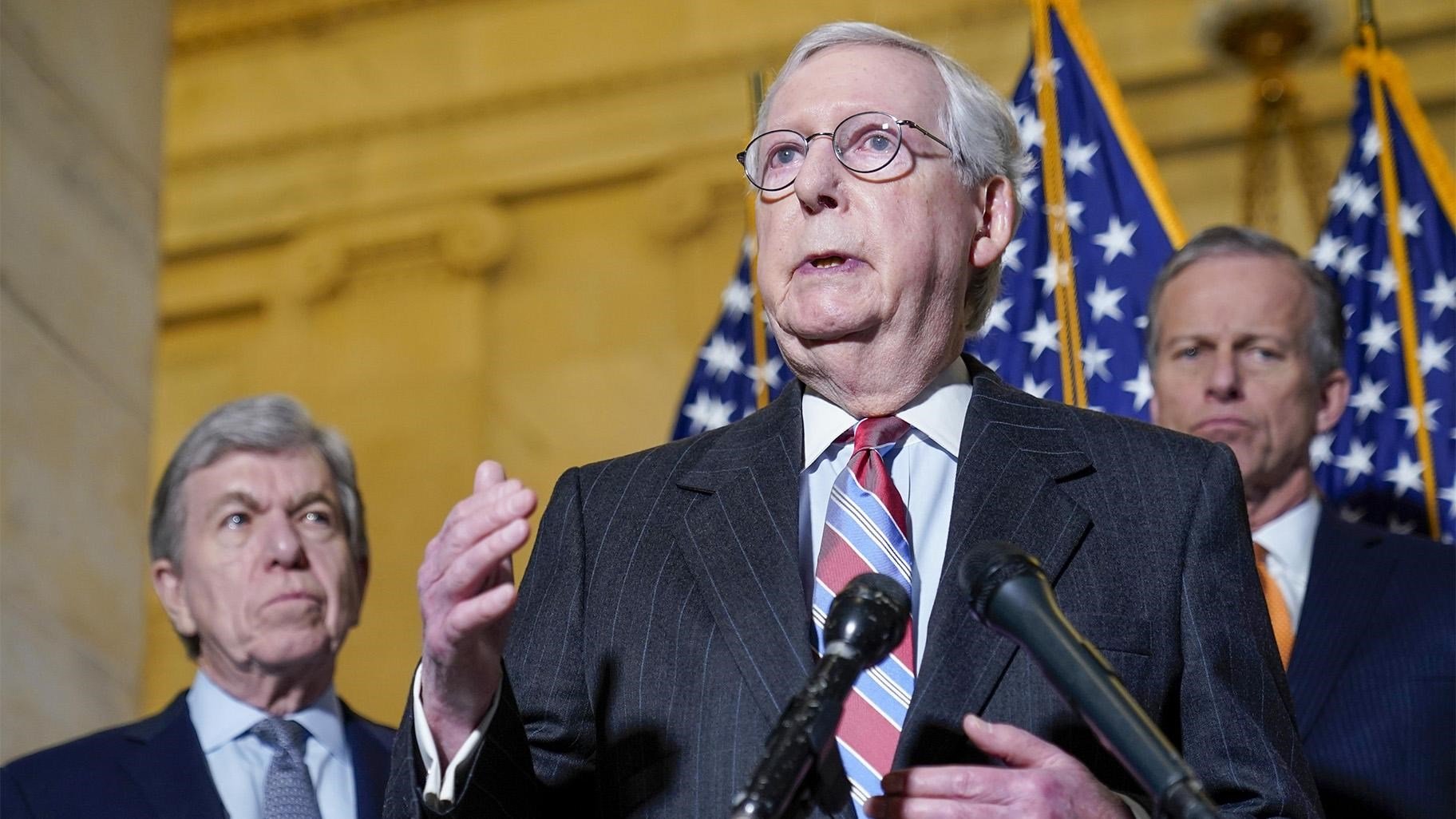US Republican legislators not to back new Iran nuclear deal
Amid fears that the Vienna talks to revive the Iran nuclear deal could collapse at any given moment, US Republicans issue a statement saying they would thwart any deal struck with the Islamic Republic.
-

Republican Senate Minority Leader Mitch McConnell, Washington, DC, February 8, 2022, with Republican Senator Roy Blunt, and Republican Senator John Thune (AP)
Nearly all Republican US senators said Monday they would not back a new nuclear deal between Iran and the P4+1.
49 out of 50 Republican senators underscored that their party opposed any attempts to revive the 2015 nuclear agreement with Tehran as the world fears an imminent collapse of the talks in the Austrian capital.
The legislators, based on press reports regarding the deal, said the Biden administration could reach a deal that was less strict on the Islamic Republic, weakening sanctions and lessening restrictions on the country's nuclear program.
They claimed they would do everything in their power to thwart any agreement that does not "completely block" Iran from developing nuclear arms - despite Tehran continuously assuring that this was not its intent - curb its ballistic missile program, and confront its "support for terrorism".
The only Republican who was not on board with the party's position, Rand Paul, said he did not sign the statement because "condemning a deal that is not yet formulated is akin to condemning diplomacy itself, not a very thoughtful position."
The Vienna talks between Iran and the remaining JCPOA parties began in April on the assumption that the US, under the Joe Biden administration, is willing to reverse the so-called maximum pressure policy pursued by former President Donald Trump against Tehran.
Upon its signing in 2015, the deal was not backed by any Republicans in Congress. The deal impeded the Iranian uranium enrichment program in exchange for international sanction relief. Many Democrats also opposed the accord.
Republicans, despite holding Congress majority in 2015, failed to force Washington to pull the plug on the deal, and they are unlikely to be able to do so once again under the 2015 Iran Nuclear Agreement Review Act, which gives the legislative body the right to review an agreement.
The Senate and the House of Representatives are very slightly dominated by the blue party, who is unlikely to turn against President Joe Biden if his administration was to strike a deal with Tehran.
Iran has stated that it would not accept anything less than the complete removal of all US sanctions in a verifiable manner. It also wants assurances that Washington would not withdraw from the agreement again.
A few days ago, EU Foreign Policy Chief Josep Borrell announced the suspension of the Vienna nuclear talks, while Iranian sources reported that there were still "two or three issues" that still needed to be resolved.
The European official also claimed that the parties to the talks had reached a deal, while Iranian sources refuted these claims.

 3 Min Read
3 Min Read








